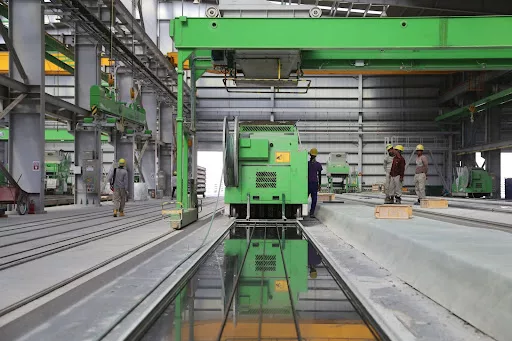3 December 2022
By Roger Kennedy
roger@TheCork.ie
Automation in manufacturing is rapidly changing the landscape of the industry. As technology advances, manufacturers are taking advantage of the many benefits automation brings to the table. The advantages of automation are becoming increasingly clear, from improved efficiency and cost savings to improved workplace safety. This article will look at four of the most important benefits of automation in manufacturing that you need to know about.
Increased Scalability
One of the benefits of automation in manufacturing is increased scalability. Automated systems are flexible enough to be easily modified to suit your business needs. This means you can scale production up or down to meet demand quickly and efficiently. With a manual system, it isn’t easy to increase production quickly. Hiring more workers is the best way to increase production capacity with a manual process. However, if demand then drops, you need to lay off workers. This can be expensive and disruptive to your business. Automation gives your business more flexibility and makes it easier to respond to changes in demand. When demand is higher, you can use automation to be more productive without investing in additional staff. When demand is lower, you can use automation to make savings on labour costs. This helps your business to stay profitable and scalable regardless of demand.
Improved Quality Control
Another top benefit of automation in manufacturing is improved quality control. When manufacturers have to manually inspect each piece of a product before it goes out the door, it can be challenging to ensure it is of the highest quality. This could mean that products are not shipped out as quickly as they could be. The only way to speed up the inspection process is to increase the number of workers inspecting products. In many cases, this means hiring more workers to do the job. However, this can be costly and lead to increased mistakes. Automated manufacturing can help manufacturers to maximise quality control. Machinery can also produce more consistent results; for example, gummy molds can ensure each gummy is of the same size and consistency. Engineers can also program their machines to measure their products’ quality automatically. This can allow manufacturers to adjust if a part is not up to standard. This can help ensure that the product is of the highest quality when it leaves the factory.
Faster Production Times
Another benefit of automation in manufacturing is faster production times. With a manual production process, it isn’t easy to increase production. You are limited by the number of people you have and their capacity. This means you will have to turn work away if there is too much work. To increase production, you will have to hire more people. However, this can be difficult and time-consuming due to the high turnover of manufacturing workers. An automated system makes it easier to increase production without hiring more workers. You can easily program the system to perform production tasks more quickly.
Enhanced Workplace Safety
Another top benefit of automation in manufacturing is enhanced workplace safety. When manufacturers rely on manual production, they often face challenges related to workplace safety. When workers are tired, they are more likely to make mistakes. When workers are tired, they may also be less aware of their surroundings and less likely to notice potential hazards. Automated production can help to reduce many of the issues related to safety in manual production. You can program the machines to do their work safely when making products with machines. This means that workers don’t need to be present on the production line to ensure that items are being produced safely. Automated machines are also very consistent in the way they operate. This consistency means that there is less chance of a mistake occurring.
Conclusion
If you are making the transition from manual processes to automation, there are many benefits you can expect, with the five just being the tip of the iceberg.

